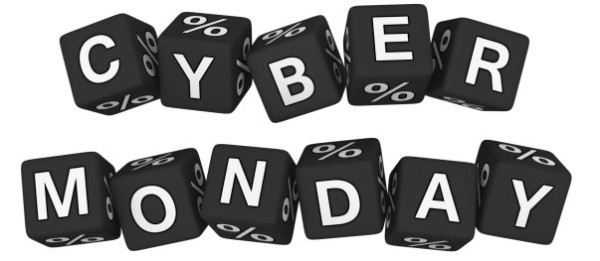Cyber Monday History & Sales Trends
The History of “Cyber Monday”
“Cyber Monday” was imagined by a lobbyist in Washington D.C. just over a decade ago and since then sales have increased year after year. In 2006, the first “Cyber Monday,” a new online version of “Black Friday,” was pitched to consumers in the form of million-dollar marketing campaigns and they worked. On the first Monday after Thanksgiving deemed “Cyber,” online sales increased by more than 25% from 2005, surpassing $600 million in sales. In this made-up holidays fourth year, “Cyber Monday” 2010, online retailers broke $1 billion in sales and in 2015 consumers tripled that number when they spent over $3 billion.
The concept was apparently the brainchild of Ellen Davis, a senior vice president at the National Retail Federation (NRF), one of the most influential conservative lobbying trade groups in D.C. “Cyber Monday” was first announced through their press release in November 2005 titled, “Cyber Monday Quickly Becoming One of the Biggest Online Shopping Days of the Year.” Even though it wasn’t one of the biggest—not even in the top ten—that headline became prophetic. Five years later in 2010, “Cyber Monday” became the largest day for online spending that year. This was accomplished with help from the media, spearheaded by the New York Times, who legitimized the retail trade association’s claims on November 19th 2005, with an article titled, “Ready, Aim, Shop.”
NRF’s affiliate, Shop.org, released the November 2005 statement that read, “While traditional retailers will be monitoring store traffic and sales on Black Friday (the day after Thanksgiving), online retailers have set their sights on something different: Cyber Monday, the Monday after Thanksgiving, which is quickly becoming one of the biggest online shopping days of the year.” The New York Times confirmed that there was a “trend” by using the NRF’s own numbers from the press release in their reporting.
“Though it sounds like slick marketing, Cyber Monday, it turns out, is a legitimate trend,” wrote Times writer Michael Barbaro. “According to Shop.org. a trade group, 77 percent of online retailers reported a substantial sales increase on the Monday after Thanksgiving last year.” The vast majority of products sold on “Cyber Monday” are related to the fashion industry who are a leading advertiser with the paper.
In a recent survey, 40% of U.S. consumers said that they are planning on taking part in “Cyber Monday,” but only 22% said that they would do the majority of their holiday shopping online. The concept of “Cyber Monday” was exported to Canada and France in 2008, the United Kingdom in 2009, and to Japan in 2012 after Amazon announced Japan’s Anniversary Association had approved their request to celebrate an online day for consumers. In 2013, both Forbes and CBS News announced that “Cyber Monday” had officially transformed into “Cyber Week,” giving consumers more time to shop and cyber criminals more time to steal identifies.
If you plan on shopping online this Holiday season, here are some tips to keep you safe.
Approximately 33,000 tire-related crashes occur each and every year, resulting in about...
The Ford C-Max Energi Electric car is being blamed for starting more...
“The findings in this analysis conducted for The Safety Institute are disturbing,...

